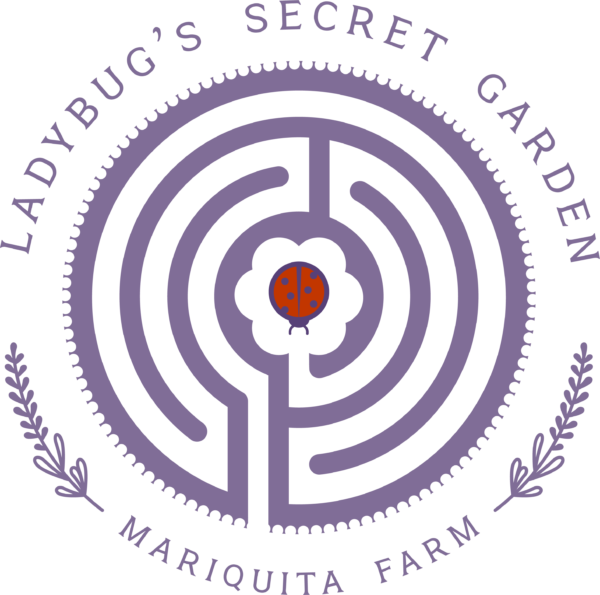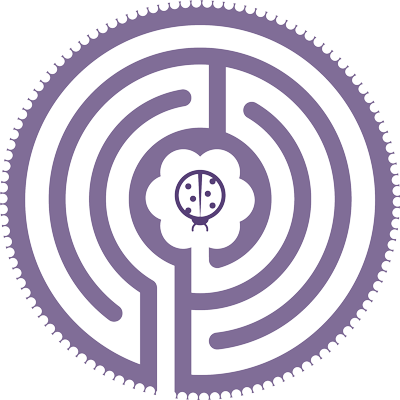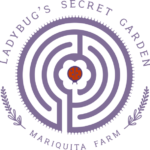Pancakes and Seaweed
 When my farm has me stressed, and I want to leave it all behind, I throw the kids in the minivan and head down the coast highway to Big Sur. I call out every stream we cross on our way south like train stations. “ Salinas River, Carmel River, San Jose Creek, Maldonado Creek.” It never fails that when we pass over the Garrapata Creek bridge, a cry goes up from the back seat, “Tell us about the pancakes!”
When my farm has me stressed, and I want to leave it all behind, I throw the kids in the minivan and head down the coast highway to Big Sur. I call out every stream we cross on our way south like train stations. “ Salinas River, Carmel River, San Jose Creek, Maldonado Creek.” It never fails that when we pass over the Garrapata Creek bridge, a cry goes up from the back seat, “Tell us about the pancakes!”
“But that story has no redeeming social value,” I protest.
“Pancakes, pancakes, pancakes,” Graydon and Lena chant.
So I tell them again. When I was their age, a great friend of mine was an old cowboy named Jimmy Bell. Jimmy had a story about when he was a kid growing up on a little homestead up Garrapata Creek with his Uncle Harvey. This was back in the 1920’s, when life on the south coast meant growing all your own food and only going to town for essentials a couple of times a year. Uncle Harvey earned what little cash he had from selling a few head of cattle. Kerosene, bullets, baking powder, nails, wire, flour, and clothing all came from Monterey. Liquor came from local bootleggers, who traded it for dried beef. A lot of things we take for granted, Jimmy and his Uncle Harvey did without.
Uncle Harvey had a friend named Doolan, a hermit. He might have been a fugitive from the law. Doolan lived further down the coast, back in the wilderness, in a little cabin tucked away in a dark redwood canyon along a stream that fed into the Big Sur River. Locals called the remote spot “Doolan’s Hole.” Doolan hunted wild game and panned for the few flakes of gold hidden in the river gravel. But mostly he just laid low.
Every once in a while Uncle Harvey would saddle his horse, pack some supplies on his mule, and ride down the coast to visit Doolan and trade for gold. Jimmy would go along as part of the baggage on the mule.
Doolan’s Hole was dank and shady with ferns, moss, and mushrooms growing lush in the dim light. Sunbeams only penetrated the gloom for an hour or so a day during the height of summer. Doolan always had a cold, or maybe it was an allergy; anyway, he snorted like a pig.
A visit from Uncle Harvey with his mule load of supplies was like a visit from Santa Claus for feral old Doolan. Jimmy and Uncle Harvey would stay the night before starting out again for their homestead on Garrapata Creek. In the morning, Doolan would celebrate his guests by making his favorite treat: pancakes. While the little fire of manzanita burls burned down to coals, Doolan would get out the flour Uncle Harvey had brought him, and any chicken eggs that had survived the bone-rattling journey by mule from Harvey’s hen house. The skillet was pulled down from its nail on the wall of the shack, and greased with deer fat.
The jug of fresh milk Harvey had packed for the trip would be shaken by its mule ride, so the butterfat in it would already be churned into lumps. Jimmy would fetch the milk jug from the creek where it had been left to chill overnight, and fish the lumps of butter out with a spoon.
Once all the ingredients were gathered up, the batter could be ready in a jiffy, but you wouldn’t wan to pour it in the skillet too soon, or you won’t get a pancake that flips easy. To make sure his skillet was hot enough, Doolan had a method. He’d plug up one nostril with his right thumb and blow the contents of his runny nose into the pan. If the skillet sizzled, it was time to make the first golden brown pancake. If a cheery sizzle was missing, Doolan would stoke the coals in the fire pit and wait a bit before trying again with the other nostril.
“Oooh, gross!,” the kids cry out. “Tell it again!”
“No,” I answer. “Once is enough.”
We keep driving south, past the Little Sur River, past the huge rock that rises up like a small mountain from the surf and forms Point Sur. My great-grandfather, Marius Jorgensen, helped with the stonework in 1902, when they built the keepers quarters for the Big Sur Lighthouse that sits atop the rock. If the kids are bugging each other, or me, I’ll make them listen again as I tell them all I know about Marius.
I know that Marius came to Watsonville from Denmark in the 1890’s. Denmark is a small country and back then it was poor. When Marius was born, Denmark had just gotten even smaller and poorer because the Germans had invaded and seized the province of Schleswig-Holstein. For the youngest son in a farming family, the choice was to work on the farm for the oldest brother when he inherited the land, or go to sea. Marius emigrated to Germany and found work as a plasterer, a mason, and a painter. My uncle told me that when the Kaiser tried to draft Marius into the German Army, he too the money he’d saved, returned to Denmark to say goodby to his family, and sailed for America.
In the last century Danish immigrants had a reputation in America for being ignorant and stubborn peasants who were usually drunk. “Square-head” or “block-head” were two common derogatory epithets for Scandinavians. But Marius found that his skills as a plasterer, mason, and painter made him a marketable laborer. “Money is so easy to earn in America,” he wrote back to his family, “ that work is like stealing! Send me a wife!”
So they did. Marius met Petra for the first time at the train station. They married and had three daughters: my grandmother Anna, and her sisters Katherine, and Helga. Petra died young in 1905, shortly after the birth of her third daughter.
We pass over the bridge that crosses the Big Sur River and drive past the Forest Service Headquarters. I can remember back in the summer of 1967, when there was a line of hippies that extended from the Forest Service headquarters all the way up the grade to Post Ranch, hitch-hiking south to L.A. So many flower children tried to go back to nature that the Forest Service had to shut down some campgrounds because there was human feces in the river.
When I was a kid I asked someone why so many people wanted to come to Big Sur, and they said it was because Big Sur was a “power spot” where spiritual energy welled up out of the earth like a spring, and that a person could renew themselves by simply being there and soaking up the good vibes.
My father heard that and grinned. He was a scientist— empirical— and he said that what goes up must come down. If Big Sur was a fountain of energy, then Salinas must be the drain. Even now I wonder, because the Salinas Valley is a veritable salad bowl that feeds America, and yet despite all the wealth its land produces, not much seems to stay in Salinas. The money drains away.
The Post Ranch goes past the car window. Nowadays there are rooms for rent, and a very fancy restaurant. My grandparents, Anna and Graydon, stayed at the Post Ranch for their honeymoon in 1918. Post Ranch was a ranch at the end of the road back then, and only cattle trails stretched south along the coast. They took a romantic walk up the Big Sur gorge, and surprised some bootleggers who fired a shotgun at them. My friend Jimmy Bell would have been around the area at that time. In fact, he told me a curious story that I’ll tell my own children someday.
Jimmy said that one time he and his Uncle came south after visiting Doolan to see “the old Chinaman.”
This old gent lived in a cottage built of driftwood on a rock just above the surf some miles south of Post Ranch. He made his living gathering seaweed and abalone. He cut the abalone into strips, salt it with sea salt he collected, and laid the meat out to dry in the sun on a rock set back from the sea spray. He dried the seaweed he collected in the same way.
When the abalone and seaweed were properly cured, he would pack it in bags for storage. The next time someone like Uncle Harvey came along with a horse, he would pay them in dried abalone to haul the packages to Post Ranch, from where they would be sent by wagon to Monterey, and eventually to Chinatown in San Francisco— where a relative would sell them in his market. Sometimes the old man would carry his wares to Post Ranch on his back in a sack, but he didn’t like to visit civilization very often.
One day, as Jimmy and Uncle Harvey were passing by the Post Ranch heading south, they saw a strange sight. There was a long, black limousine parked at the end of the road, with a Chinese man in a formal black business suit brushing the dust from his black shoes. They called out “hello” to him, but he didn’t turn to greet them. He stepped into the back of the car, and it pulled away. Seeing a car that far south was odd enough. Jimmy told his Uncle Harvey that this was the first time he’d seen a Chinaman drive a car. Uncle Harvey reminded him that they hadn’t seen the Chinaman drive, only step into the back— and they hadn’t seen the driver at all.
Past Post Ranch the road got worse, and by Castro canyon it was no wider than a cow track. Jimmy and his Uncle counted the times they crossed streams, because the trail to the Old Chinaman’s shack was hard to find. When they did find the trail, they dismounted and led their horses on foot. The trail was steep and the brush closed in tight. To make matters worse, the old fellow was afraid of demons, so he had fashioned the trail as a maze, with false spurs and disorienting loops. In places there were little brass bells that tinkled to startle the evil spirits. It took someone with skill and patience— or better yet, prior experience with the Old Chinaman— to reach the rocky cove where the cottage stood.
When they got to clearing, they shouted out a hello, as is proper in the country when you drop in unannounced. They could see the abalone drying on the rock, and the strips of green-black seaweed, but there was no sign of the old gentleman. The driftwood door was open. They heard the buzz of flies before they entered. The old Chinaman was sprawled out his back dead, his body riddled with bullet holes. Maybe that was Death back there, getting into the limousine, Uncle Harvey said. Maybe the Devil is Chinese, or maybe he can look like anyone. He couldn’t say, not having really seen his face.
copyright 2007 Andy Griffin
0 thoughts on “Pancakes and Seaweed”
Leave a Reply
You must be logged in to post a comment.



Great story, Andy! I enjoy the way you weave stories I’ve heard before with the new ones! Pancakes! Pancakes!
Great stories!